
Hong Kong national security law: from protesters to a fleeing ex-lawmaker, a reporter and a media tycoon – arrests that grabbed 2020 headlines
- In the wake of the anti-government movement of 2019, 2020 was no less turbulent for city’s political landscape
- Among the top political news of the year were the arrest of Apple Daily founder Jimmy Lai, jailing of opposition figures and the Shenzhen trial of 12 city fugitives caught at sea
The Post looks at 10 arrests in 2020 that grabbed headlines:
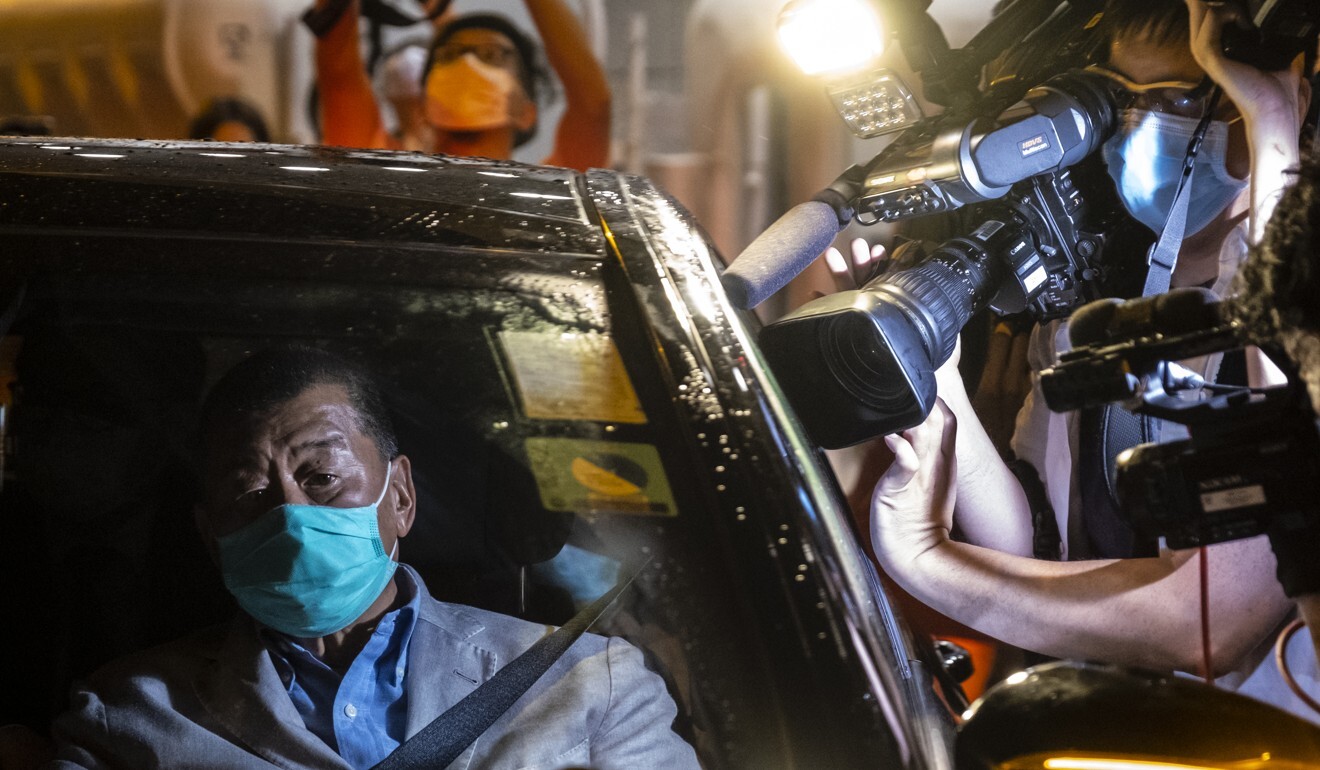
1. Jimmy Lai, Apple Daily founder
Despite being cleared of a criminal intimidation charge against a reporter from a rival newspaper earlier last year, Lai, the boss of Apple Daily, a tabloid-style publication often supportive of anti-government protesters, was arrested in August and again in December, and was charged with commercial fraud and colluding with foreign powers.
Police raided Apple Daily’s office in Tseung Kwan O during the August arrest, also detaining his two sons and three senior executives, two of whom had since been charged for fraud. Prosecutors have accused Lai of using his Twitter and Apple Daily platform to call for sanctions against the Hong Kong government. For the fraud case, Lai was accused of subletting office space at the Hong Kong Science and Technology Parks Corporation, a government-owned enterprise, to a secretarial firm to evade land premiums.
A look back at six months of Hong Kong’s national security law
He was in custody at the start of December until two days before Christmas, when he became the first suspect charged under the national security law to be granted bail under very stringent conditions. But on Thursday, he was remanded in jail custody again after the Court of Final Appeal accepted the prosecutors’ argument that he should be detained until their appeal against his grant of bail by a lower court is to be heard in February.
Lai is facing various charges in separate cases over his participation in some protests last year, as well as last year’s June 4 vigil to mark the Tiananmen Square crackdown of 1989.
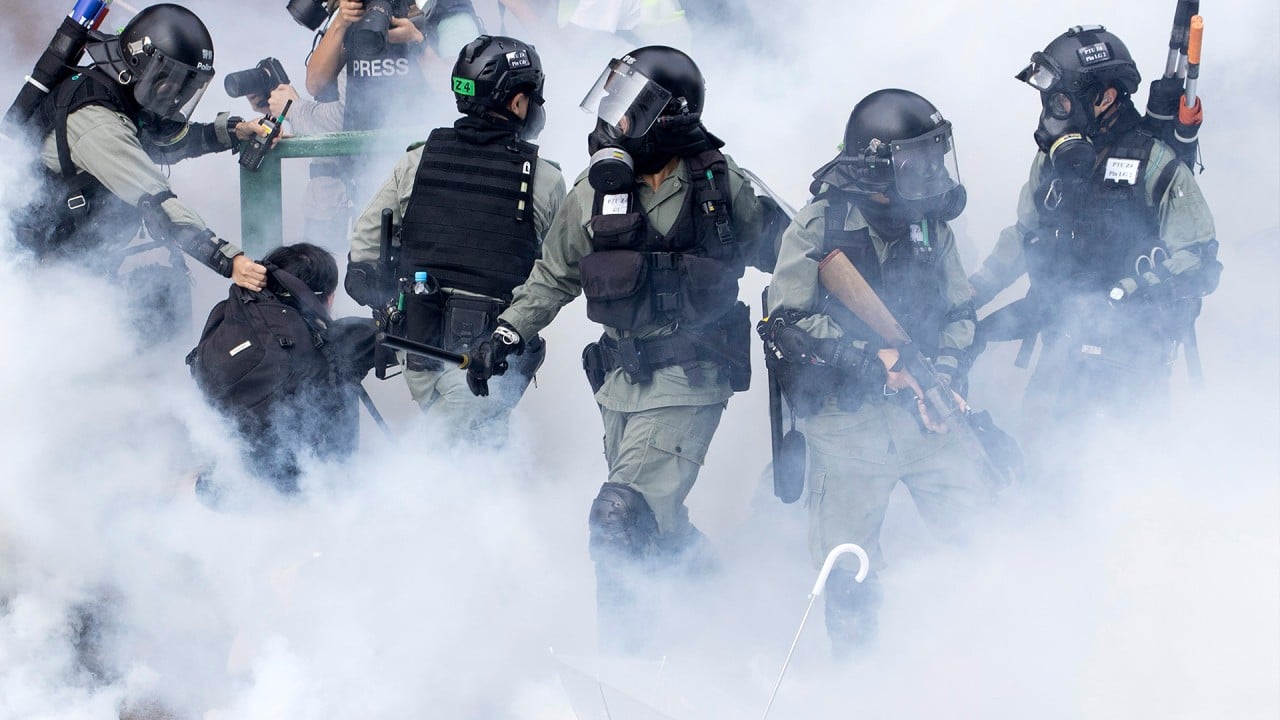
07:30
China’s Rebel City: The Hong Kong Protests
2 Agnes Chow Ting, student activist
Chow, known for her appeal to the Japanese audience because of her proficiency in the language, was arrested over breaching the national security law in connection with Jimmy Lai’s case in August. She was not charged for that case. But she is currently spending time in jail with her close ally, prominent activist Joshua Wong Chi-fung, after they were found guilty earlier in December of taking part in and inciting an unauthorised protest outside police headquarters in Wan Chai in June last year.
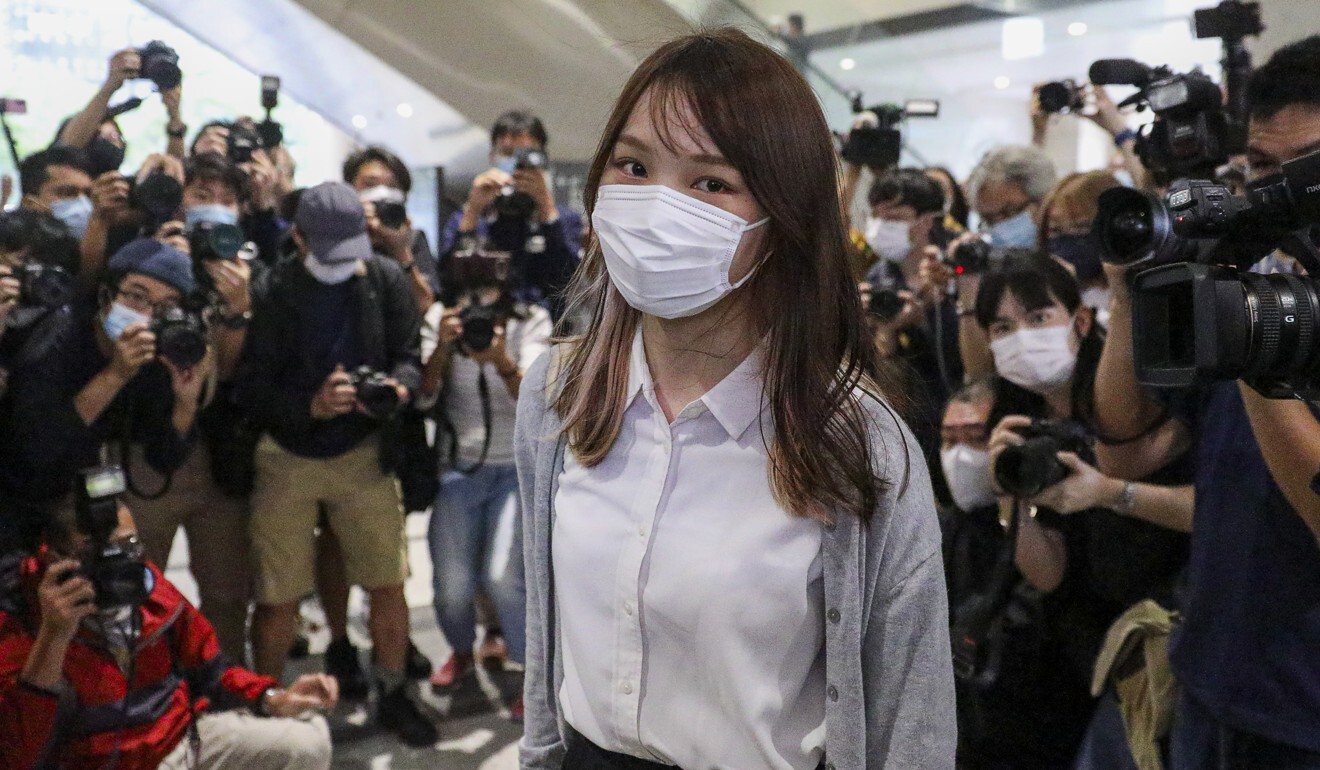
3 Tong Ying-kit, protester
The 23-year-old was among the first batch of protesters arrested under the national security law, and the first to be charged. He was taken in on July 1 during an annual protest marking Hong Kong’s return to Chinese rule, a day after the enactment of the national security law. Tong was accused of riding a motorcycle with a flag calling for the liberation of Hong Kong into a group of policemen that day. He was charged with one count of inciting secession and another of terrorism two days later. He has been remanded in custody pending trial since.
Since then, 48 people have been arrested, including an online radio host behind a fund to support protesters who have fled to Taiwan, an activist just before his bid to seek asylum at the US consulate, and some demonstrators at Chinese University. Prosecutors have charged four people.
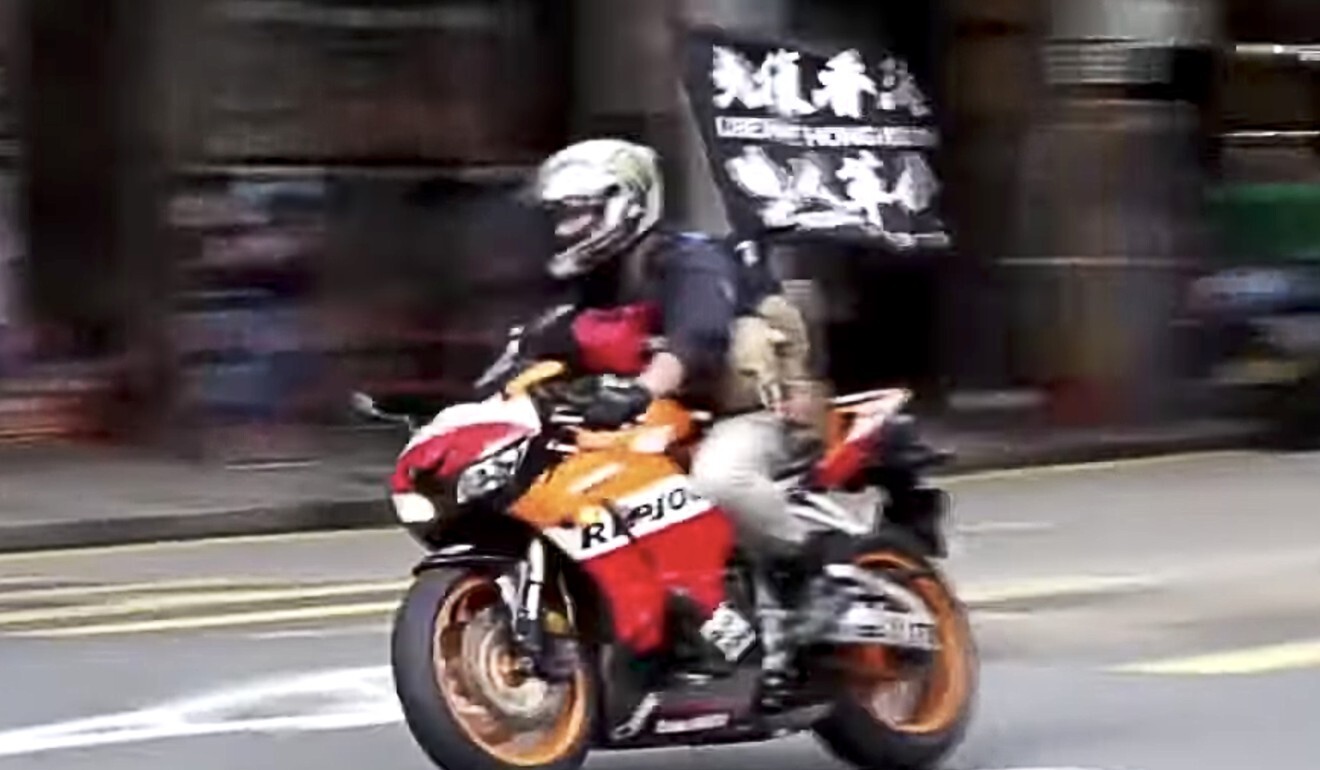
4. Veteran democrats
“Father of Democracy” Martin Lee Chu-ming and other veteran democrats including Margaret Ng Ngoi-yee were arrested in April over various anti-government marches between August and October 2019. It was the first time Lee, a senior counsel and former lawmaker who co-founded the Democractic Party, was ever arrested. They have since been charged for their roles in the respective protests.
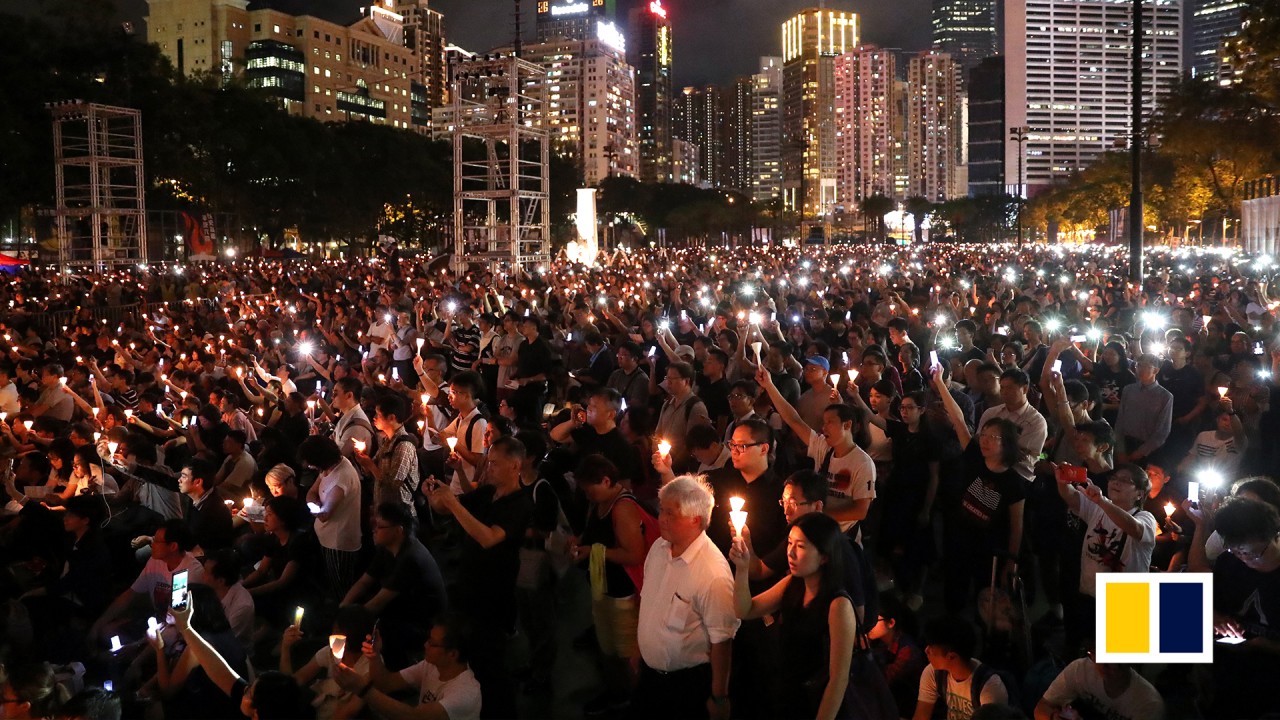
02:09
More than 100,000 people attend June 4 vigil to mark the 29th anniversary of the Tiananmen Square crackdown
5. June 4 vigil organisers
For three decades, Hong Kong has been the only place in China where a large annual vigil to commemorate Beijing’s crackdown at the Tiananmen Square has been allowed. But organisers failed to obtain a no-objection letter last year from police, who cited the Covid-19 pandemic as a reason. Yet many, including the organisers themselves, turned up at Victoria Park in Causeway Bay to light candles. A week later, police arrested 13 people, including veteran activist Lee Cheuk-yan and his peers from the Alliance in Support of Patriotic Democratic Movements of China, which has been responsible for the annual event throughout the years. They were later charged.
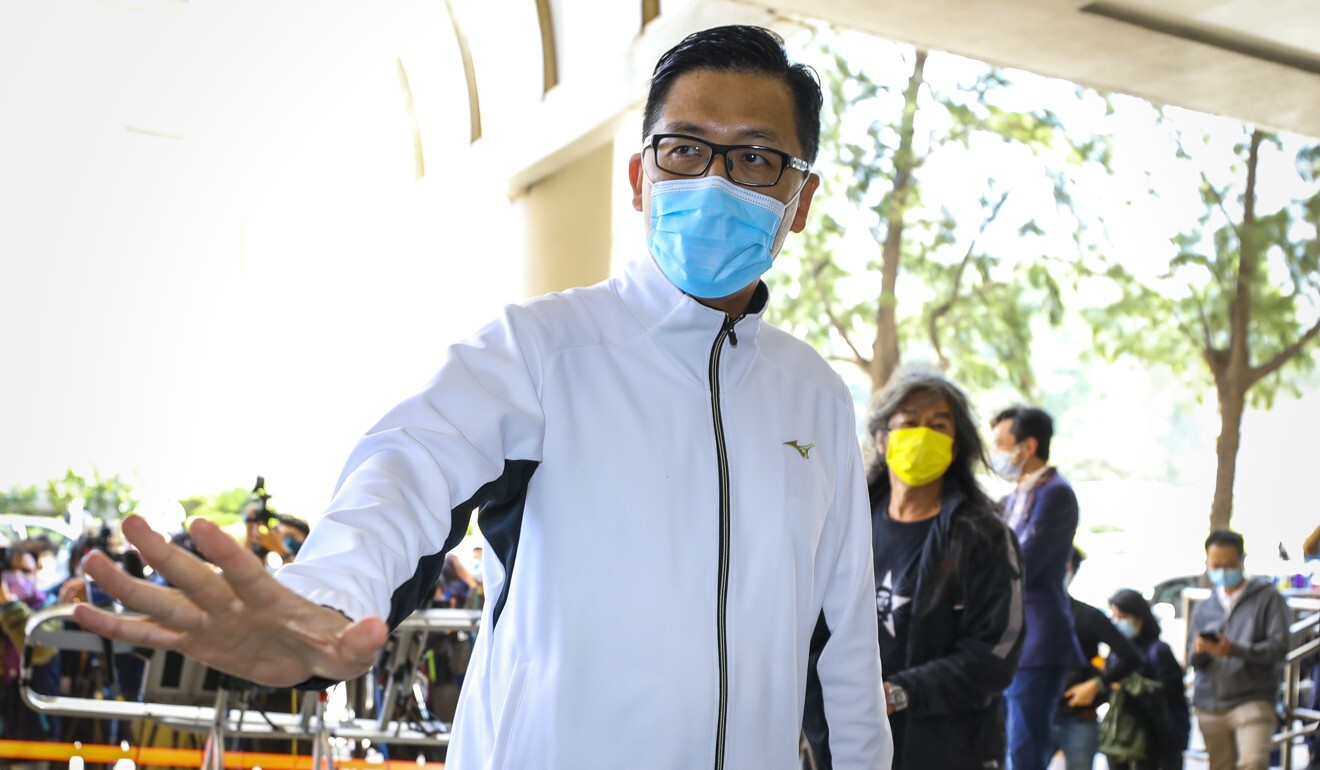
6. Lam Cheuk-ting, former Democratic Party lawmaker
While many opposition figures have faced arrests last year, Lam’s case stood out. He was charged over one of the most controversial incidents that dealt a blow at police’s popularity in 2019, despite earlier understanding that he was, too, a victim that day. On July 21, 2019, a white mob brandishing weapons attacked returning protesters and train passengers at Yuen Long Station. Lam was among the injured. Police were under fire for not arriving at the scene promptly enough to protect those under attack. In their defence, police said they were immensely occupied that evening. A year later, in August, police arrested Lam and 16 others for rioting that night, in what critics argued was their attempt to “rewrite history”. Offering a different version, police said attackers and anti-government protesters were “on equal footing” that day, with the latter playing a role to provoke the former.

7. Ted Hui Chi-fung, former Democratic Party lawmaker now in exile
Hui was arrested at about the same time as Lam Cheuk-ting. They both stood accused of intending to pervert the course of justice over a separate incident outside Tuen Mun Police Station in July 2019. The ex-legislator was later arrested again in November over breaching the Legislative Council (Powers and Privileges) Ordinance – on suspicion of contempt and interference with the legislature’s officers – during a meeting in May.
Earlier in December, Hui revealed he had fled Hong Kong for Britain with his family via Denmark. It later emerged that the bid was only made possible after certain Danish politicians concocted a fake conference in order for him to retrieve his confiscated passport from a Hong Kong court. His departure also triggered a row with several banks, an episode which cast a shadow on the city’s renowned financial services sector which was caught up in the political crossfire.
Hui accused certain banks of freezing his accounts and those of his family members at police’s request, and denied accusations from the authorities that he was involved in money laundering. Hong Kong Chief Executive Carrie Lam Cheng Yuet-ngor questioned Hui’s credibility, noting he had lied to a court and jumped bail. Lam gave assurances that the city’s banking system was not affected.
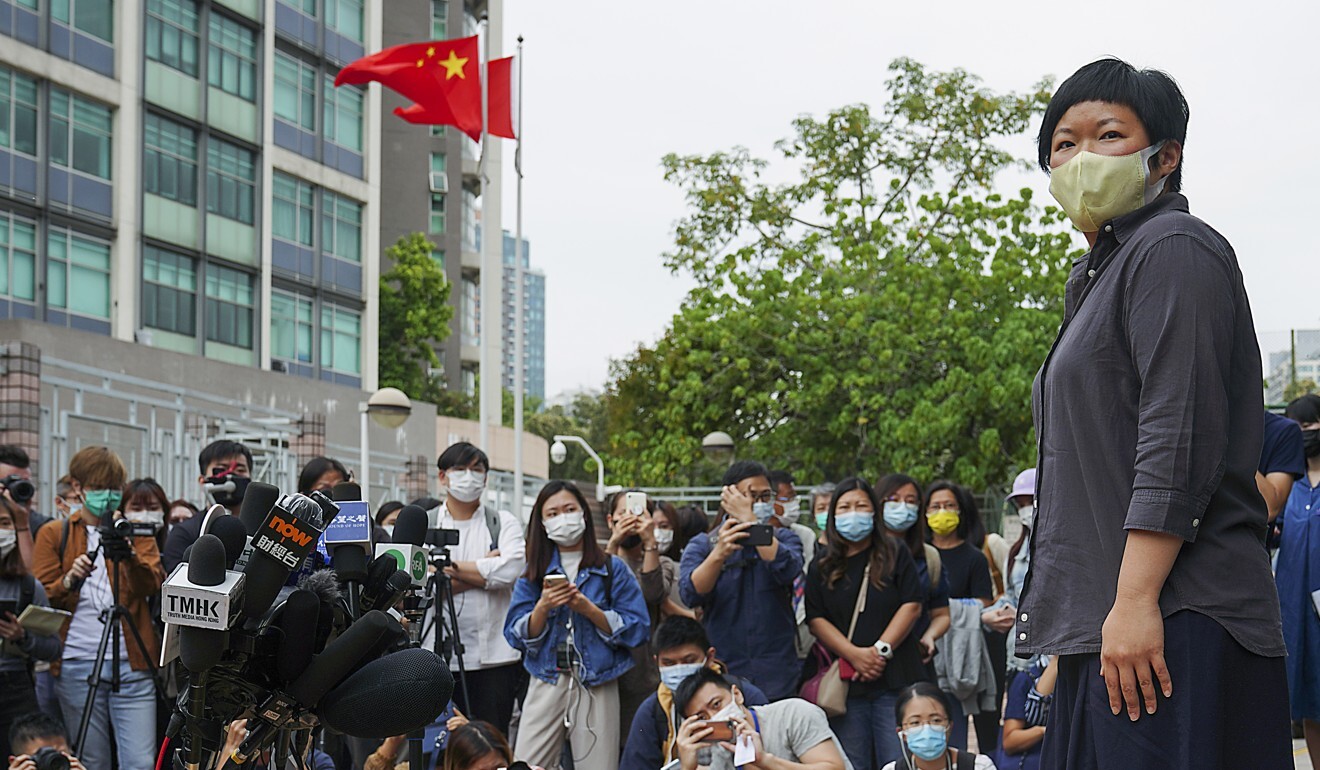
8. Bao Choy Yuk-ling, RTHK reporter
Choy was one of the reporters behind an investigative programme which looked into the Yuen Long attacks on July 21, 2019, in which a white-clad mob beat up protesters and commuters at the MTR station, and police were accused of being slow to act.
She was arrested in November and subsequently charged with two counts of making false statements under the Road Traffic Ordinance, allegedly committed when she searched for personal details of car owners in the government database. Media academics and unions have accused police of creating a chilling effect on investigative journalism, while the force insisted it was not targeting reporters or any particular programmes.
The incident raised uncertainty over how the city’s journalists should carry out investigative work in future.
9. Tam Tak-chi, activist
Tam was arrested for seditious speech in September, with the national security law already in force. He was not charged under that law, but instead, became the first suspect since the return of Hong Kong to Chinese rule in 1997 to be charged with conspiracy to utter seditious words, a colonial-era law.
Prosecutors argued that the remarks Tam made spanned between January and July last year. They alleged that Tam bore seditious intent when he shouted common protest slogans, including “Liberate Hong Kong; revolution of our times” and “Five demands, not one less”, as well as anti-police chants such as “Rogue cops and their families go to hell” and “Disband the police force”. Tam has been remanded in custody since his arrest.
Recently, prosecutors have sought to have Tam’s case heard before a judge designated for national security cases because they argued the words Tam uttered fell into the subversive speech outlawed by the legislation, even though some of the alleged offences were dated before the law was enacted.
Did a Chinese court go too far in punishing 10 fugitive Hongkongers?
10. Twelve Hong Kong fugitives captured at sea
In August, 12 Hongkongers were arrested in Chinese waters while trying to flee to Taiwan. They were detained for months in Shenzhen. All of them except activist Andy Li – who was arrested under the national security law – face local charges relating to 2019’s anti-government protests.
They had boarded a speedboat at the pier of Po Toi O, a tranquil village in Sai Kung, in a daring sea escape, but were intercepted by the Chinese coastguard. The suspects’ families complained Chinese authorities did not give their loved ones proper access to lawyers or allow visits.
After four months in detention, eight pleaded guilty on Tuesday to illegal border-crossing and were jailed for seven months two days later. Two others, who admitted to organising others to cross the border illegally, were sentenced to two and three years in jail respectively. The remaining two, who were underage at the time of the offence, were sent back to Hong Kong on Wednesday. They are undergoing quarantine in jail custody before they will be brought to Hong Kong’s courts.
Which stories mattered most to you in 2020? Find out with our Year In Review 2020 retrospective

